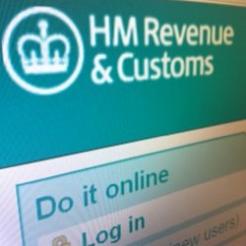After a briefing by HMRC on Charities Online yesterday, Niki May Young finds herself questioning the efficacy of the new requirement of postcodes for all gift aid claims.
Is Big Brother closing in? At a briefing for the charity sector on the upcoming Charities Online launch yesterday, Withers' Graham Elliott dismissed the potential reticence of donors to provide postcodes for fear of how the Powers That Be may use them. But in reality, there's just no way of knowing until the system, which will see gift aid claims processed using online forms from April and will require donors' postcodes to be submitted from next year, goes live.
Big Brother was just one of a number of concerns about the necessity to include donors' postcodes in gift aid claims that were raised at Withers' City office at Old Bailey yesterday, none of which was settled conclusively by HMRC's head of charities Andrew Edwards.
A packed audience of charity professionals heard how the HMRC would be "flexible", "pragmatic" and "use discretion" in its refusal of claims without correct postcodes. But the word of the law still remains that in one year's time, if your gift aid claims do not have postcodes, or correct postcodes, they risk rejection.
CTG's Chris Lane said that in consultation sessions with the sector, many charities said they didn't have that infomation available. Many hold enduring declarations where they might have signed up a regular donor ten years ago, been receiving donations ever since, but held little contact with them since. Contacting these donors could be a significant administrative and financial burden, warns Lane, and that's if you can find them at all.
"What about people that move?" he asked, the so-called 'go-aways'. I for one know that the first people I think to contact when I change address are not the charities I support, but my bank, the HMRC and the DVLA. Charities can ask all they like, but chances are that it wouldn't cross most donors' minds to do so. And even if they did, this could generate a significant administrative burden in itself.
And what about those that marry and change name, or when donations are processed by a third party, or, going back to the first point, those who are reticent to provide their address details. The charity sector risks losing not just gift aid, but actual donations, on the back of a weak assurance by HMRC not backed by legislation.
At one point Edwards claimed HMRC would know whether RNIB, for instance, has a high number of enduring declarations and would take that into account. Is this knowledge instinctive? Does HMRC have this knowledge for each of the 162,000 registered charities in England and Wales? And if not, does this then mean that the less well-known, dare I say, the smaller charities, are more likely to be penalised without this prior knowledge?
In any case, as Elliott asked, where is the proof of the administrative easing that the system will allow? Where is the proof that the system will make it easier to detect fraud, as are the reasons for the postcode requirement cited by the HMRC?
Edwards said that overall, Charities Online would have a zero cost to the sector in its first year and a net saving in subsequent years, but refused to give figures. He also refused to advise which charities are more likely to incur costs in the first year.
I left the session less convinced than I was before that Charities Online would be a panacea to current gift aid processing woes. While there is an obvious need to move online and potential to reduce administrative burden, the flaky promises of the HMRC leave me concerned that the requirement to include donors postcodes may leave the sector relying on something of a 'postcode lottery'.









